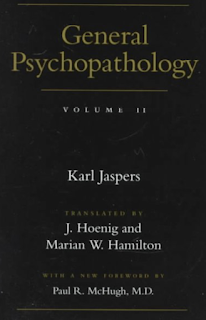Today's post is by Lucienne Spencer, currently working on the Renewing Phenomenological Psychopathology project. In this post, she argues for the importance of an intersectional approach.
 |
| Lucienne Spencer |
Promising as phenomenological psychopathology might be when it comes to liberating our understanding of psychiatric illness, the methodology remains rooted in the philosophy and social science of the mid-20th century. As such, it risks falling into siloed thinking and, in turn, falling back into obscurity. I argue that one meaningful way to revise the methodology of phenomenological psychopathology is by employing an intersectional approach.
Intersectionality has deep roots in Black feminist literature, championed by the likes of Audre Lorde (1977), bell hooks (1981) and Patricia Hill Collins (1990), however, this methodology is used to examine not only the intersections between sex and race but other intersecting social identities such as disability, age, sexuality and psychiatric illness.
Turning to the realm of psychiatry, Frantz Fanon (1952) argued that it was impossible to truly understand a Black person’s psychiatric illness outside their colonised situation. For Fanon, the colonised situation saturates every aspect of one’s existence. Consequently, he observes that the attempts of his fellow psychiatrists to examine a patient in abstraction from their colonised situation end in failure. Fanon is aware that one’s social situation permeates the meaning structures of one’s world. It gives one’s entire life-world a particular hue.
Despite the work of Fanon, phenomenological psychopathology in its current form is insufficiently sensitive to the intersectional character of lived experiences. The patient's life-world is structured by gender, race, ethnicity, age, sexuality and other characteristics that give their illness a unique meaning. Therefore, I argue that we should consider how these structural factors intersect at a primordial level of the illness experience. Ignoring these aspects of the patient’s identity gives us only a partial view of the patient’s life-world, thus obstructing psychiatric knowledge.
Moreover, without an intersectional understanding of psychopathology, we risk committing what Miranda Fricker calls hermeneutical injustice. Hermeneutical injustice occurs when a person cannot make sense of their experiences as their marginalised perspective is excluded from the interpretive framework. For example, if the unique experience of being a woman with psychosis is not examined, we fall back on a gender-neutral understanding of psychosis, and the female experience of psychosis is obscured.
In my forthcoming work, co-authored with Matthew Broome, I introduce an intersectional framework to phenomenological psychopathology to develop a more hermeneutically just interpretive framework and provide a richer understanding of the lived experience of psychiatric illness.


